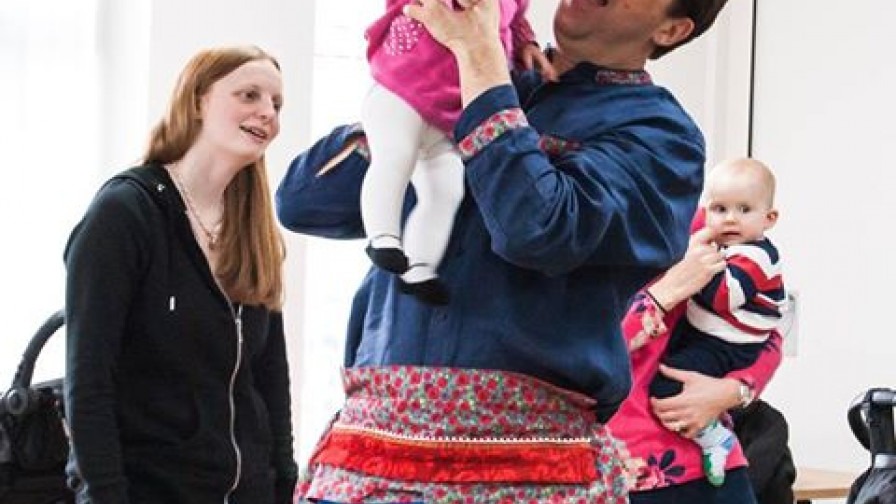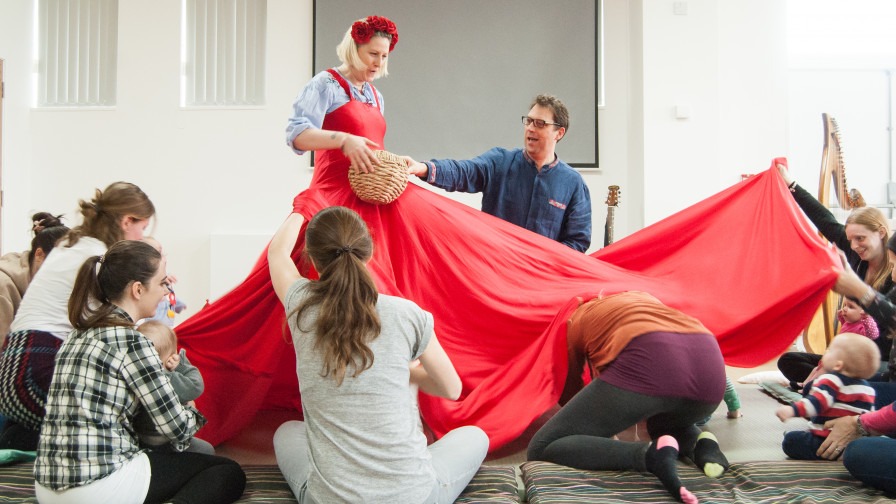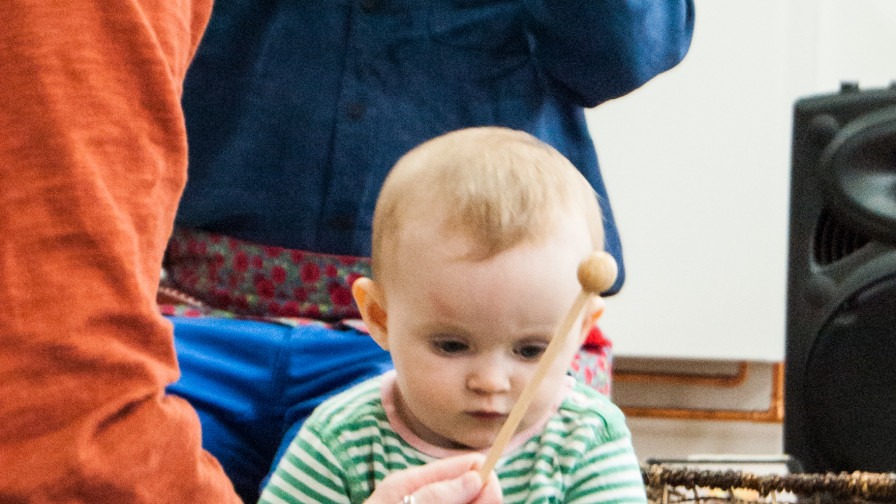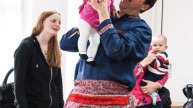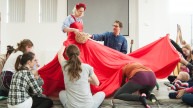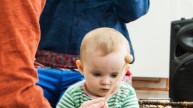Babigloo Music for Babies (0-12 months) Independent Case Study 2: Rachael and Millie
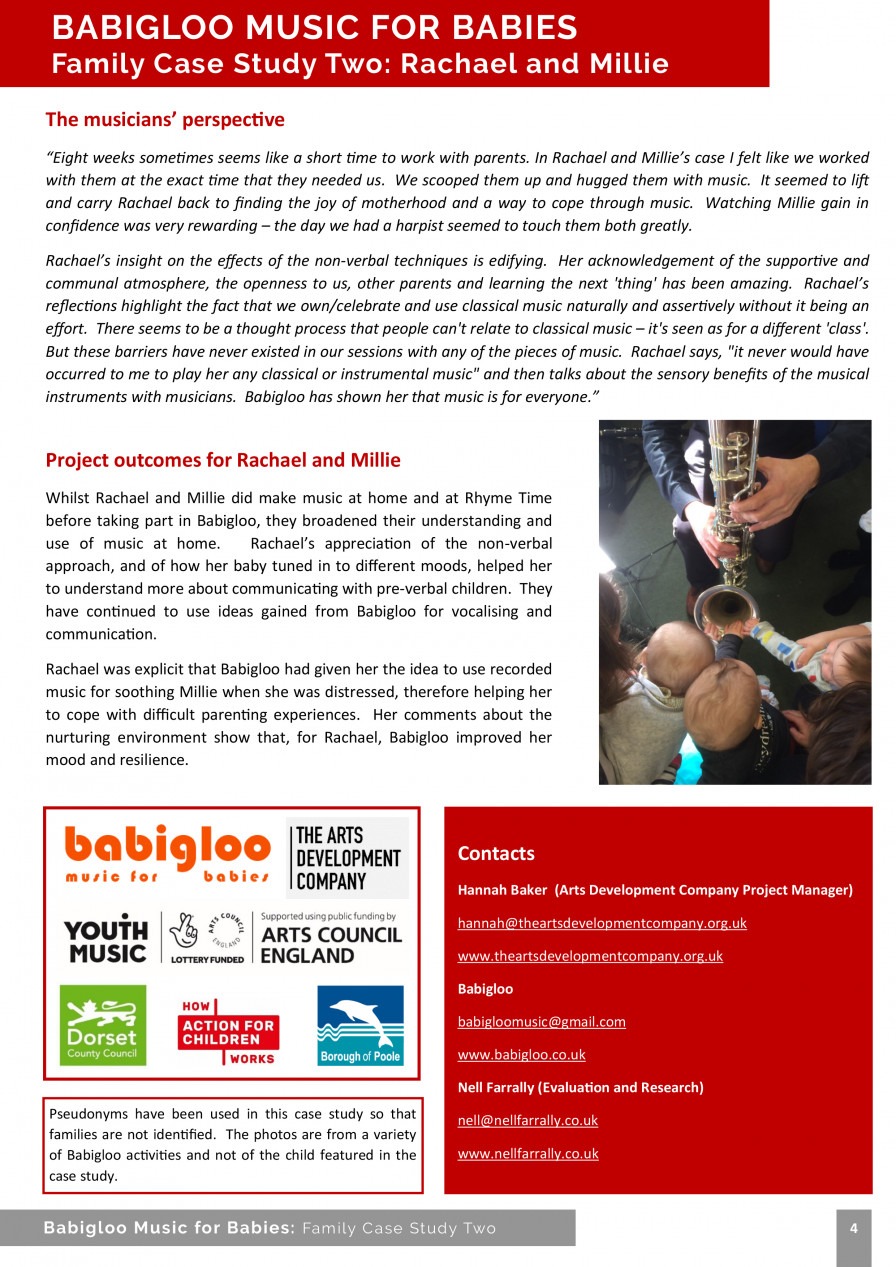
Millie was 7 months old when the Babigloo sessions commenced. Rachael and Millie’s Health Visitor suggested Babigloo, in part Rachael thought: ‘.........because we had some trouble getting Millie to settle at night’. They had been to Rhyme Time at their local library and Rachael felt, ‘I personally quite enjoy singing, so I’ve always sung to Millie... nursery rhymes and that sort of thing’, she spoke about how Babigloo had expanded their music at home.
When I’m changing her nappy and that kind of thing, I’ll sing to her. We’ve always done that, but I think Babigloo changed our outlook a little bit... it never would have occurred to me to play her any classical or instrumental music.
The full case study available at: Babigloo Case Study 2
Attention
I was really pleasantly surprised when we went to Babigloo, how drawn in by it she was. It completely captured her attention.
Making music at home
We still sing the songs at home, particularly now it’s getting colder, we go outside and ooo, brrrr. Millie is starting to try... she’s always done the ba ba ba, but if we go out somewhere and it’s cold she’ll go brrrrrrr – which is lovely.
Non-verbal approach
There were 2 aspects of Babigloo’s non-verbal approach which Rachael noted. Firstly, the effect on her baby.
... well all the babies really, it was fascinating to watch how they could capture the mood of a song, even though it didn’t have any words. When I stopped and thought about it, it’s is fairly obvious because they’re non-verbal, they can’t talk yet, so it actually... it makes a lot of sense. To a certain extent, they [the babies] probably pick up on things that as adults we pass over, because they’re very sensitive to the atmosphere and mood.
Secondly, Rachael commented on how the non-verbal approach was also good for the adults, and different to other groups she had been to.
I think Babigloo was very different to everything else, partly because of the non-verbal aspect of it. Some of Attention the other groups that we would go to like the Rhyme Time, there have been times in the last 9 to 10 months where I’ve sort of thought... either we’d had a really bad night, I’d been tired and feeling quite fed up sometimes... it feels like quite an effort to get out of the house and go to another group where everyone’s going to be talking about how well their baby is sleeping and all of the standard conversations.... If you don’t know the people that are there and you’re trying to make small-talk, it all revolves around the same conversations and actually, if you’re feeling slightly stressed out about those conversation topics, it can get a bit wearing sometimes. I wasn’t really like that with Babigloo, I think because there wasn’t that pressure to have conversations. It was nice that there was that space after the sessions where you could talk to people, somehow... because of people who were there and the situations they were in, the conversations didn’t seem to revolve around the same things quite as much.
Wellbeing
Rachael spoke about Babigloo’s intended outcome around mental wellbeing.
I never felt that I didn’t want to go or like I didn’t have the energy to go, partly because... well they’re just so nurturing, to the parents as well as to the babies. I always left feeling a lot better than when I went in. If it was a bad day, I left feeling a bit more resilient. It was something that we looked forward to. I certainly did, and I know that Millie always enjoyed it.
I’d just like to say what they’re doing is amazing.
I completely see... I’m fortunate enough that I haven’t suffered from post-natal depression or anything like that, but I think going along still made me realise a little bit how... I was feeling a bit more worn down by everything than I realised. Not any more than any mother feels... but I think it’s really valuable that it’s different. If somebody was feeling very down or very isolated, I think it would just such a good environment to be in. If people are going to be able to go anywhere, that sort of environment would be a lot more accessible a lot of children’s groups would be.
A call for more
As part of the interview by the evaluator, Rachael was asked if there was anything about Babigloo which could be improved.
I know it’s useful feedback if there’s something constructive, but I have to be honest, I felt so positive about it, that I can’t think of anything. The only thing, had there been the option to keep going, we would have gladly kept going. And if there was the opportunity to do more, I would jump at the chance. I know that’s difficult because it’s all reliant on funding.
The musicians’ perspective
Eight weeks sometimes seems like a short time to work with parents. In Rachael and Millie’s case I felt like we worked with them at the exact time that they needed us. We scooped them up and hugged them with music. It seemed to lift and carry Rachael back to finding the joy of motherhood and a way to cope through music. Watching Millie gain in confidence was very rewarding – the day we had a harpist seemed to touch them both greatly.
Rachael’s insight on the effects of the non-verbal techniques is edifying. Her acknowledgement of the supportive and communal atmosphere, the openness to us, other parents and learning the next 'thing' has been amazing. Rachael’s reflections highlight the fact that we own/celebrate and use classical music naturally and assertively without it being an effort. There seems to be a thought process that people can't relate to classical music – it's seen as for a different 'class'. But these barriers have never existed in our sessions with any of the pieces of music. Rachael says, "it never would have occurred to me to play her any classical or instrumental music" and then talks about the sensory benefits of the musical instruments with musicians. Babigloo has shown her that music is for everyone.”
Project outcomes for Rachael and Millie
Whilst Rachael and Millie did make music at home and at Rhyme Time before taking part in Babigloo, they broadened their understanding and use of music at home. Rachael’s appreciation of the non-verbal approach, and of how her baby tuned in to different moods, helped her to understand more about communicating with pre-verbal children. They have continued to use ideas gained from Babigloo for vocalising and communication.
Rachael was explicit that Babigloo had given her the idea to use recorded music for soothing Millie when she was distressed, therefore helping her to cope with difficult parenting experiences. Her comments about the nurturing environment show that, for Rachael, Babigloo improved her mood and resilience.
Babigloo Musicians Colin Phillimore Michele O’Brien Jenny Gordon
T: 07751525200
FB: babigloomusic
Twitter/Instagram: @Babigloo
Project Manager Hannah Baker (for Arts Development Company) Evaluator Nell Farrally Visiting Musicians Richard Hughes Jane Saunders Rob Lee Mark O’Brien Christine Roberts Helen Jenner
Children’s Centre Partners Poole Children’s Centres East Dorset Children’s Centres (Action for Children)
Photograph Credits: Jaz @ The Arts Development Company and Babigloo
For enquiries about this report, contact: hannah@theartsdevelopmentcompany.org.uk babigloomusic@gmail.com nell@nellfarrally.co.uk


